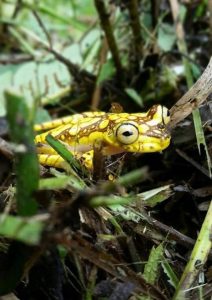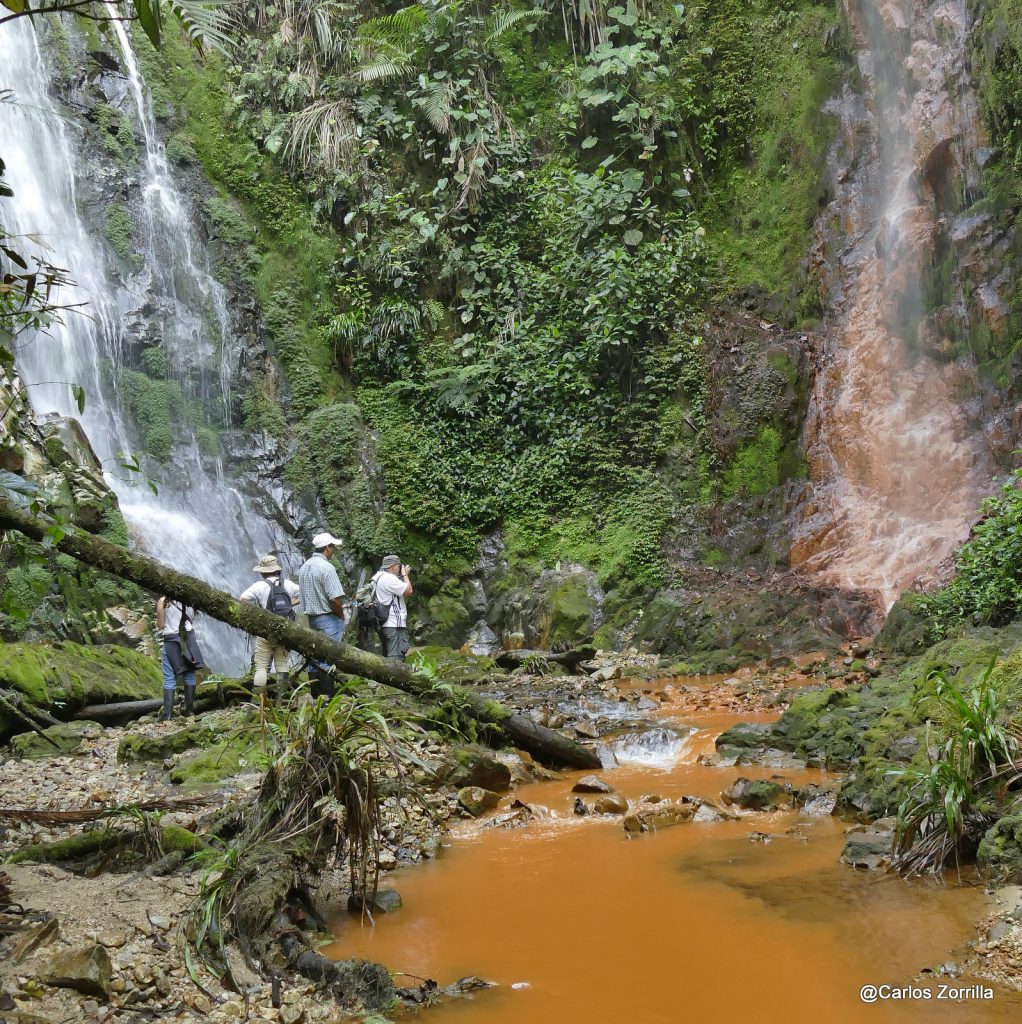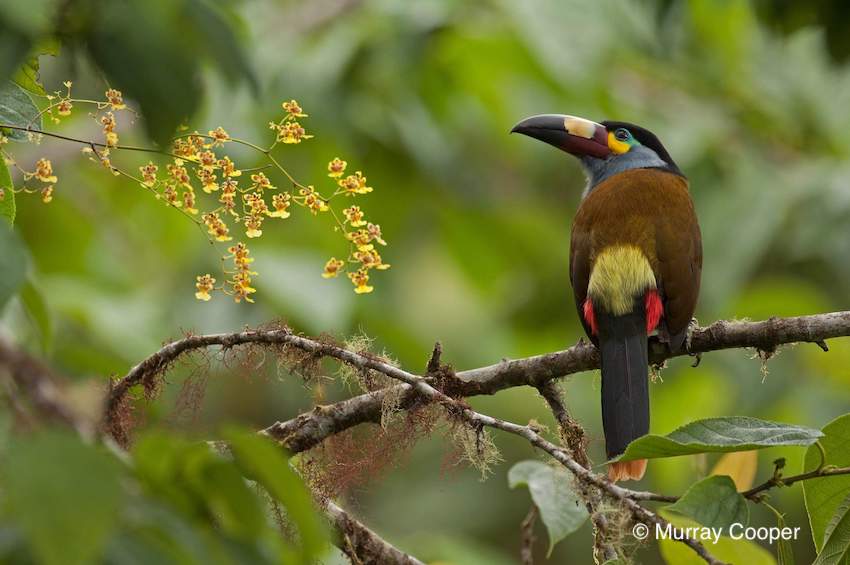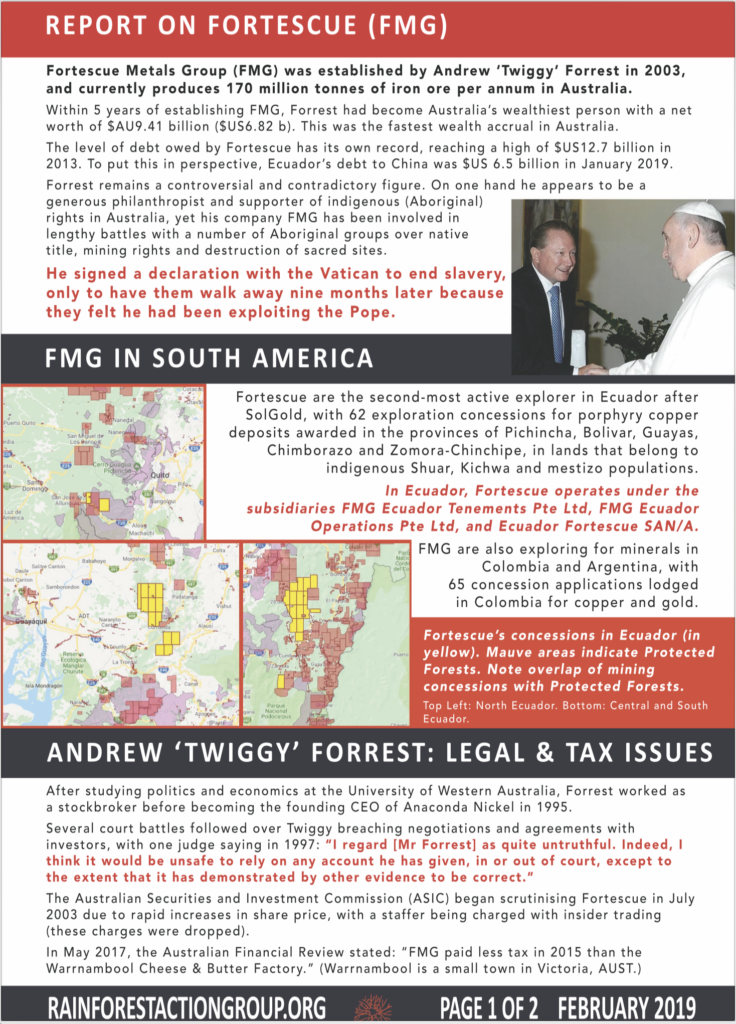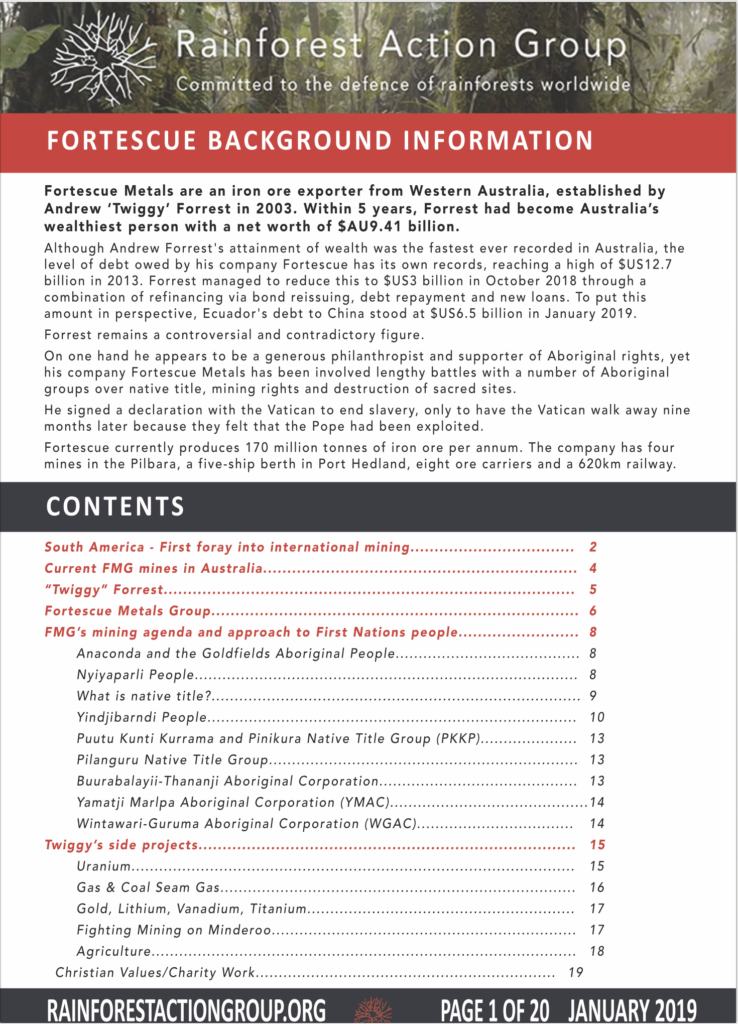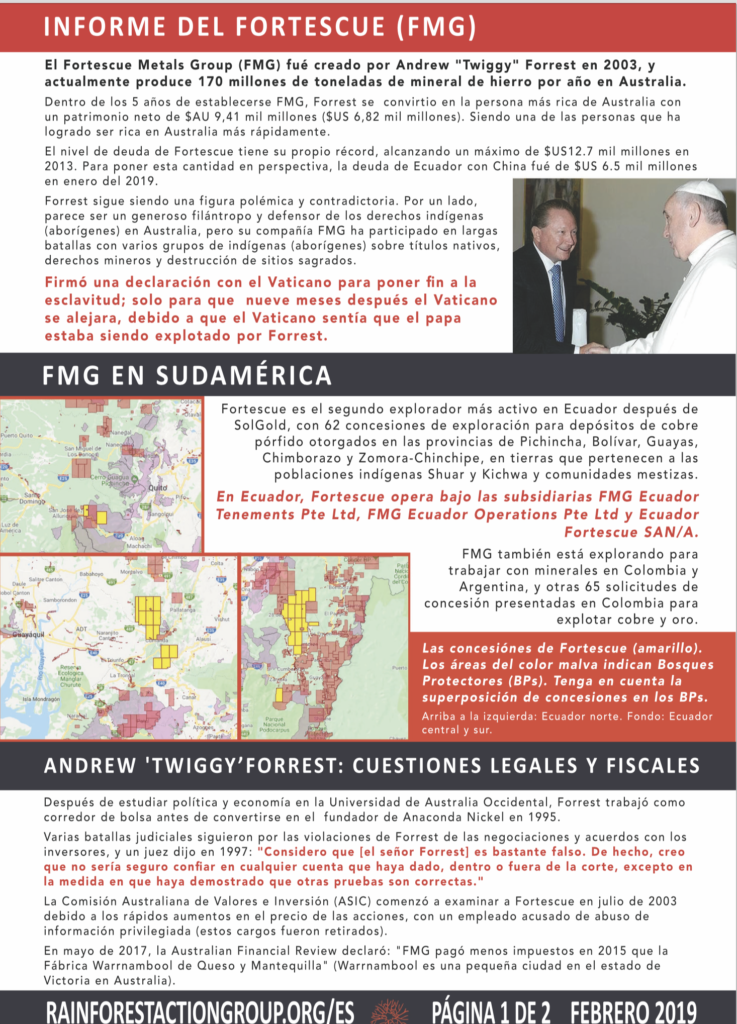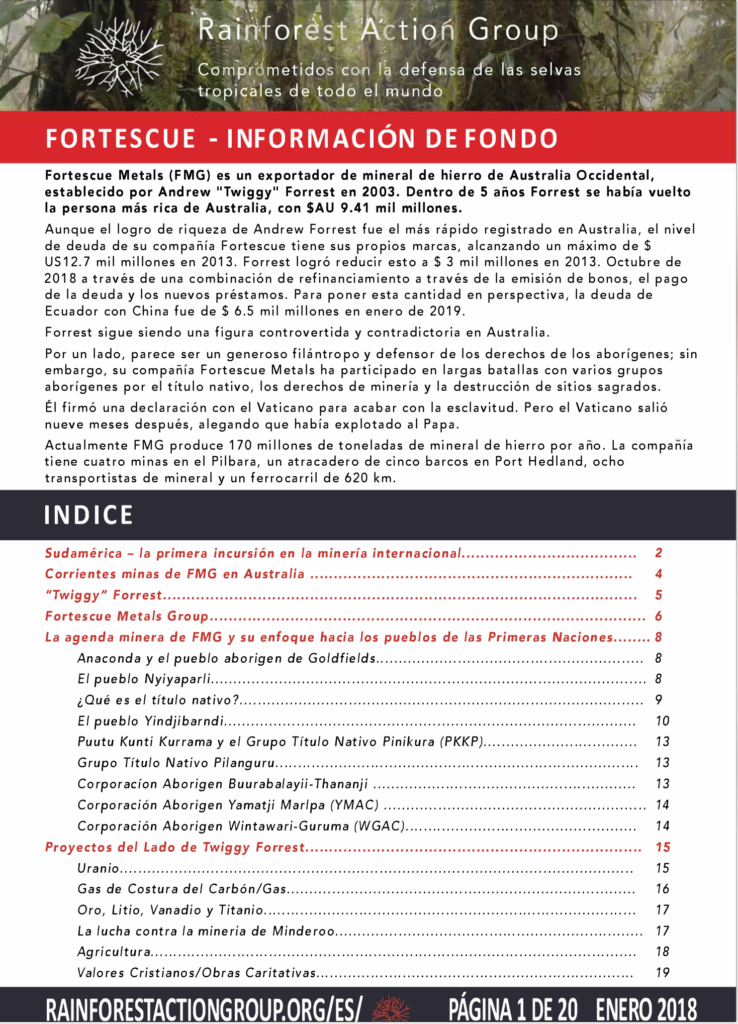Recent news
UNESCO Biosphere Reserve threatened by BHP, SolGold and other miners
Llurimagua case looks set to be lost by the Ecuadorian Ministry of the Environment
Constitutional Court could save Australian Government funded Reserve in Ecuador from mining
"TWIGGY" FORREST AND FORTESCUE (FMG)
Fortescue Metals Group (FMG) was established by Andrew ‘Twiggy’ Forrest in 2003, and currently produces 170 million tonnes of iron ore per annum in Australia.
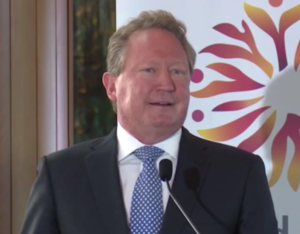
Within 5 years of establishing FMG, Forrest had become Australia’s wealthiest person with a net worth of $AU 9.41 billion ($US 6.82 billion). This was the fastest someone has ever become wealthy in Australia.
The level of debt owed by Fortescue has its own record, reaching a high of $US12.7 billion in 2013. To put this amount in perspective, Ecuador’s debt to China stood at $US 6.5 billion in January 2019.
Forrest remains a controversial and contradictory figure. On one hand he appears to be a generous philanthropist and supporter of Aboriginal rights in Australia, yet his company FMG has been involved in lengthy battles with a number of Aboriginal groups over native title, mining rights and destruction of sacred sites.
FORTESCUE (FMG) IN SOUTH AMERICA
In Ecuador, Fortescue operates under the subsidiary Ecuador Fortescue SAN/A.
Fortescue are the second-most active explorer in Ecuador after SolGold, with 32 exploration concessions for porphyry copper deposits awarded in the provinces of Pichincha, Bolivar, Guayas, Chimborazo, Los Rios and Zomora-Chinchipe, in lands that belong to indigenous Shuar, Kichwa and mestizo populations. FMG are also exploring for minerals in Colombia and Argentina, with a further 65 concession applications lodged in Colombia for copper and gold.
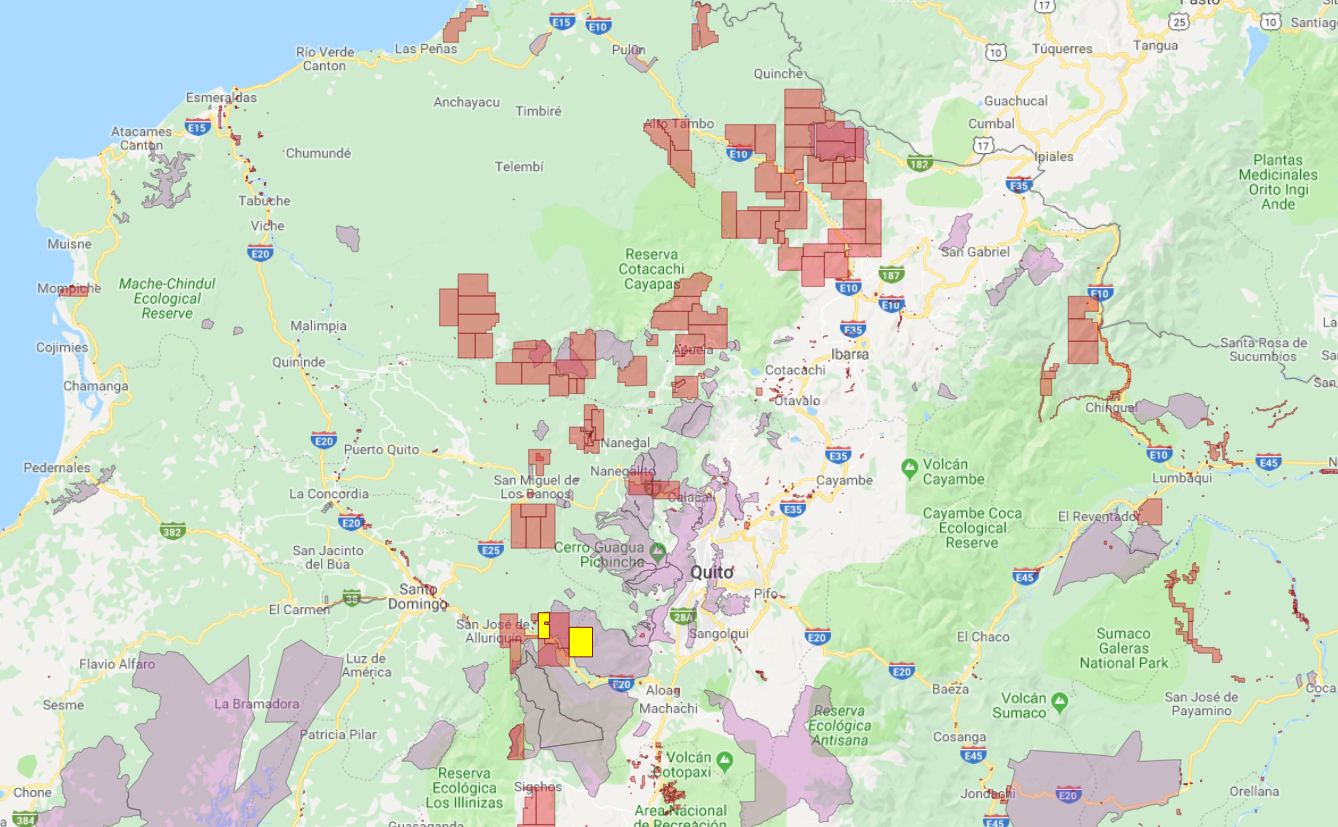
FMG mining concessions in Ecuador.
Mauve areas indicate Protected Forests. Note overlap with Protected Forests.
Above: North Ecuador. Right: Central and South Ecuador.
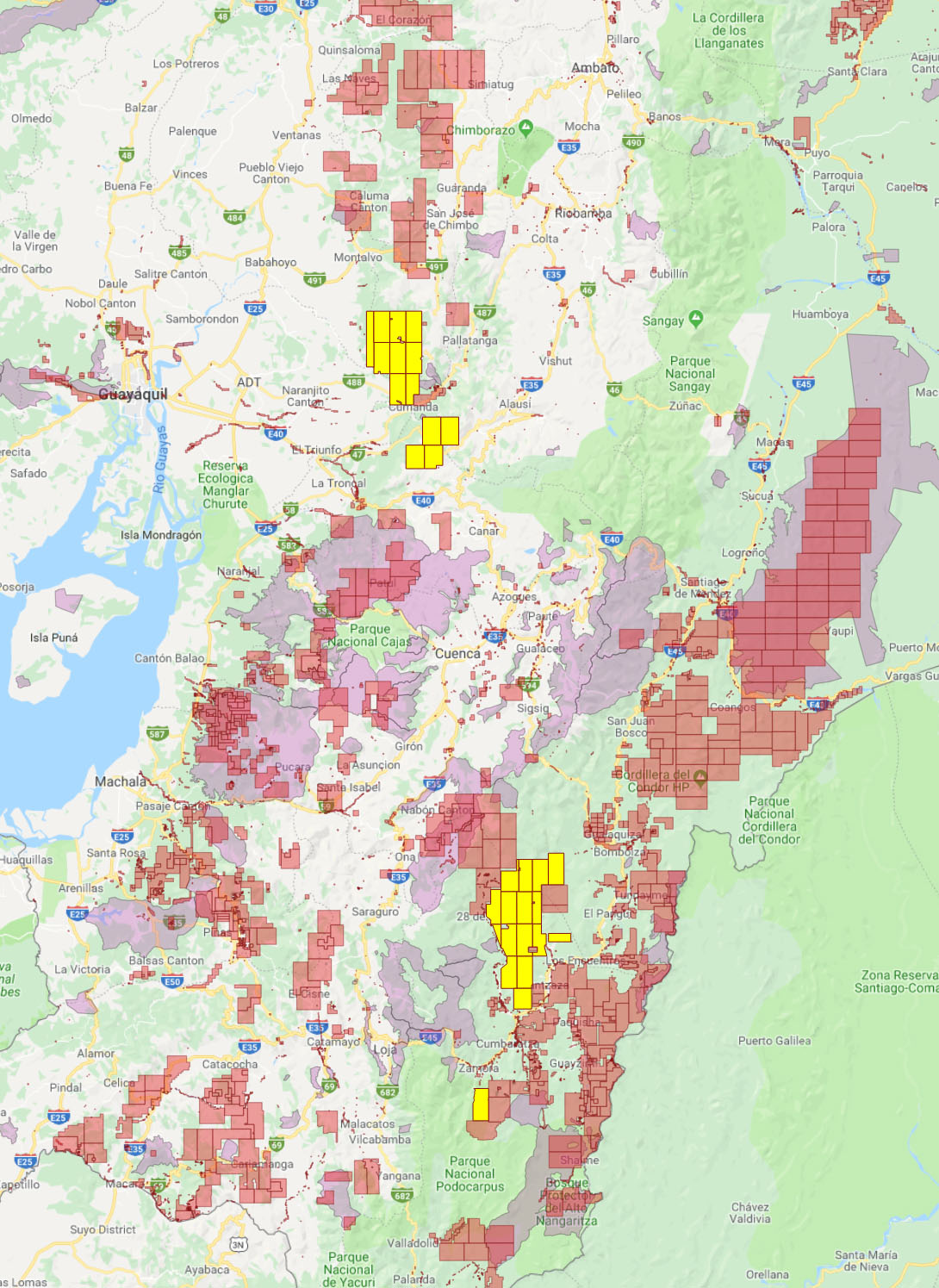
TWIGGY'S MINING AGENDA VS ABORIGINAL COMMUNITIES IN AUSTRALIA
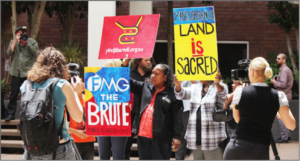
The resources from which Forrest has made billions of dollars lie beneath Indigenous land. FMG’s ideology can best be described as a capitalist missionary crusade, with Forrest saying he is committed to breaking the cycle of poverty and hopelessness by providing jobs for indigenous people. In Australia, more than 14.4% of FMG’s workforce are indigenous.
However, the Yindjibarndi people of the Pilbara region, Western Australia, say his way does not give them self-determination, and “only offers a future in the mining sector which goes against traditional custodial values towards the land”. (Welcome to Country, 6 December 2017)
FMG’s negotiations with Aboriginal groups have had ongoing problems, with extensive legal battles over mining and land rights issues, and destruction of sacred sites.
“He makes billions and billions of dollars from our murra, our country, that he destroyed, wrecked. They wrecked our sacred sites. Our country is wrecked… to this day, it causes such a rift in our community, our tribe… Some of our old people were too frightened to go out and about because they thought they’d be verbally and physically abused, which some of them were.” Yindjibarndi woman Margaret Read. (CPA, 20 June, 2018)
“Indigenous people have felt the impact of mining more than any other Australians. Yet they have benefited from it the least. The same tricks, paternalism and political back-scratching that once saw Aboriginal land sold from under the people, is now being used by Andrew Forrest to sell their resources from under them as well”. (The Aim Network, 29 May 2017).
“Forrest uses laws designed to protect Indigenous land rights to stop prospectors searching for minerals on his West Australian cattle farms, angering both traditional Aboriginal landowners and mining community members. It is one of the first known examples if a non-Aboriginal successfully using rights afforded to indigenous people to their own advantage, and adds to the fractious relationship he has with some indigenous groups.” (Reuters, 17 May 2017)
